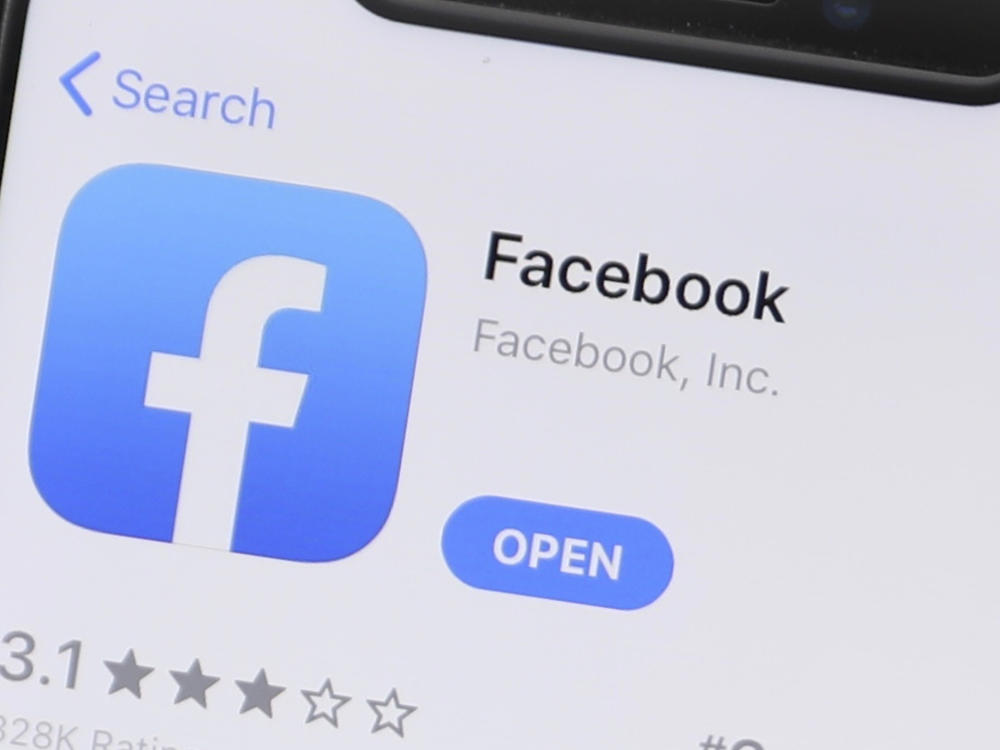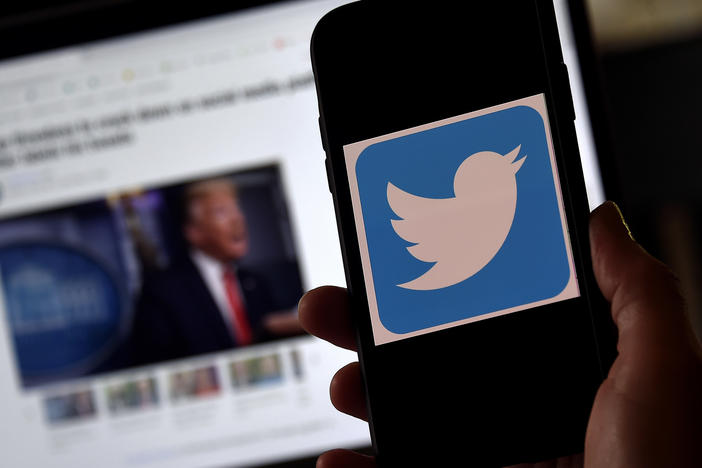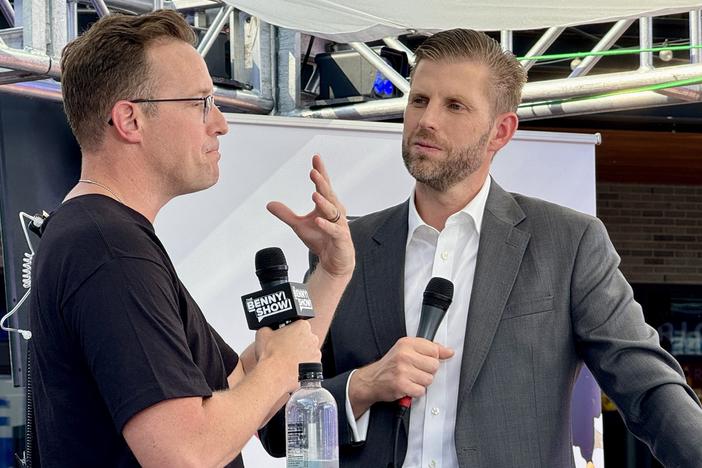Section Branding
Header Content
Judge: Facebook's $550 Million Settlement In Facial Recognition Case Is Not Enough
Primary Content
Next week, lawyers for Facebook will be back in court, trying to convince a judge they should be allowed to settle a class action lawsuit that accuses the company of violating users' privacy.
Facebook agreed earlier this year to pay $550 million to settle the case, which claims that the tech giant illegally used facial-recognition technology in its "tag suggestions" service.
The deal was the largest-ever payout as the result of a class-action lawsuit alleging online privacy violations.
It was brought under an Illinois biometric privacy law that allows people who have had their faces scanned for data without written consent to sue for damages of at least $1,000 per violation.
But under the settlement, people who have had their face data harvested in Illinois are expected to receive checks of just $150.
U.S. District Judge James Donato of California, who is overseeing the case, says that payout is woefully inadequate.
"It's $550 million. That's a lot. But the question is, is it really a lot?" Donato asked lawyers for the plaintiffs and Facebook on June 4, according to a transcript of the hearing reviewed by NPR.
"They are taking what is effectively a 98.75 percent discount," he said, "off of the amount that the Illinois legislature said might be due in this case if you proved up your case."
Attorneys for both Facebook and the plaintiffs were taken aback.
The judge's skepticism about whether the settlement amount is adequately compensating those who say Facebook invaded their privacy comes after the lawsuit dragged on for five years. There were multiple appeals and unsuccessful mediation attempts.
"We had two failed mediation attempts. And we were truly, from the plaintiff's perspective, on the brink of trial," privacy lawyer Rafey Balabanian told the judge. "I can't tell you how many times the parties dug in and claimed that they wouldn't move."
A lawyer for Facebook, Michael Rhodes, pushed back on the judge's assessment that the settlement is too paltry a sum, saying he believes users may receive more than the estimated $150 apiece.
"This is an extraordinary amount of recovery, and I think that we're being too conservative on what we think the per claim eligible form will end up producing," Rhodes told the judge.
But the judge insisted that members of the class-action deserve a bigger payout, saying in effect: come up with a larger number, or prepare to go to trial.
Judge not willing to let Facebook 'off the hook'
Facebook's legal team and the privacy rights lawyers are slated to return to court next week for a hearing to attempt to sort through the stalemate. Lawyers on both sides declined to comment on what to expect.
But Facebook spokeswoman Dina El-Kassaby said in a statement that the company supports resolving the litigation by settling.
"As we explained in January, we decided to pursue a settlement as it was in the best interest of our community and our shareholders to move past this matter," she said.
The payouts go only to residents of Illinois, since the lawsuit was brought under the state biometric privacy law, viewed as one of the strongest and most comprehensive data privacy laws in the country.
This case applies the law to Facebook's "tag suggestions" service, a feature that attempts to recognize friends in photos in order to link the photographs to their accounts.
The federal judge said at the June hearing that the law should be fully applied to Facebook's alleged violations.
"The Illinois legislature set this privacy expectation and privacy right as a serious one, and they put a high price tag on it for that reason," Donato said.
The judge also raised the question of whether Facebook breached a 2012 agreement over user privacy that the tech giant struck with the Federal Trade Commission. Last year, the FTC fined Facebook $5 billion for privacy violations and mishandling user data. As part of the accord, Facebook agreed to give users better notice about its face-scanning software.
Donato said plaintiffs' lawyers "have a pretty good argument" that Facebook's actions with facial recognition technology violated the 2012 agreement with regulators. If so, he said it could be an example of "an intentional or reckless violation" of the state law, which could warrant even higher penalties of $5,000 per person.
Other Facebook-owned companies, like WhatsApp and Instagram, are not named as defendants in the class-action. But Judge Donato said "I could see the possibility" that those Facebook subsidiaries also violated the Illinois data privacy law.
"I am not willing to let those companies off the hook in this case," he said. "The amount that the aggrieved people are going to get is $150. That just doesn't seem right to me."
Facebook, valued at more than $680 billion, had indicated that the long-running litigation had become a major expense from the company.
While the $550 million settlement is historic, lawyers have said in filings that under the maximum possible penalty, the payout could have reached $47 billion.
But Balabanian, an attorney representing those who sued Facebook, told the judge that he did not believe such an eye-popping amount would survive on appeal.
"It is almost a certainty that the court would cut that damage award down," he said.
Copyright 2020 NPR. To see more, visit https://www.npr.org.
Bottom Content




